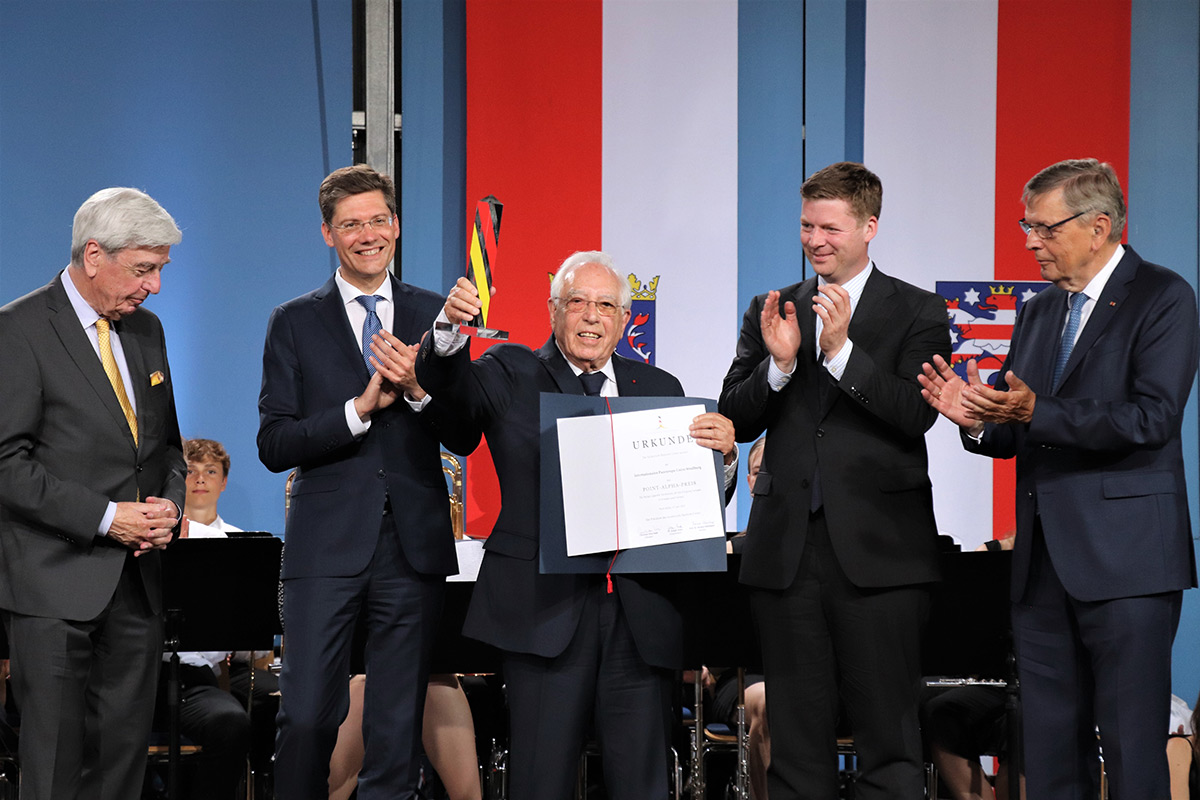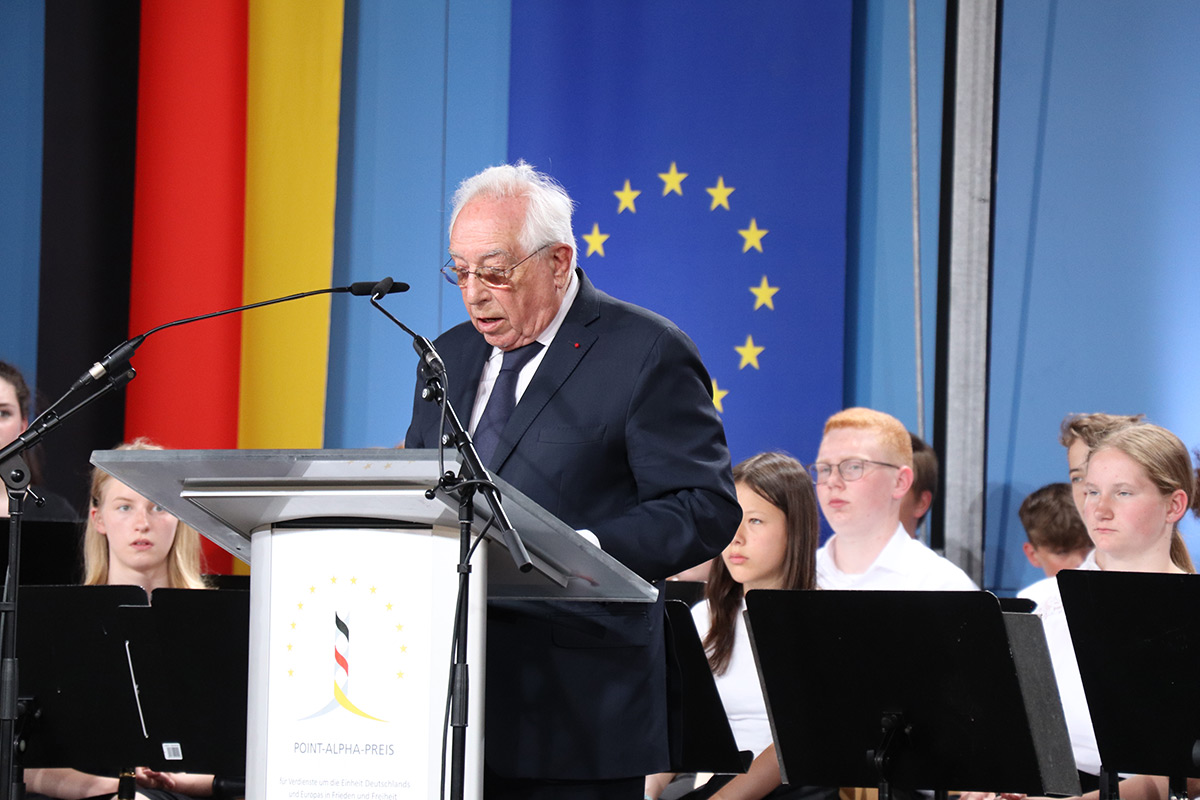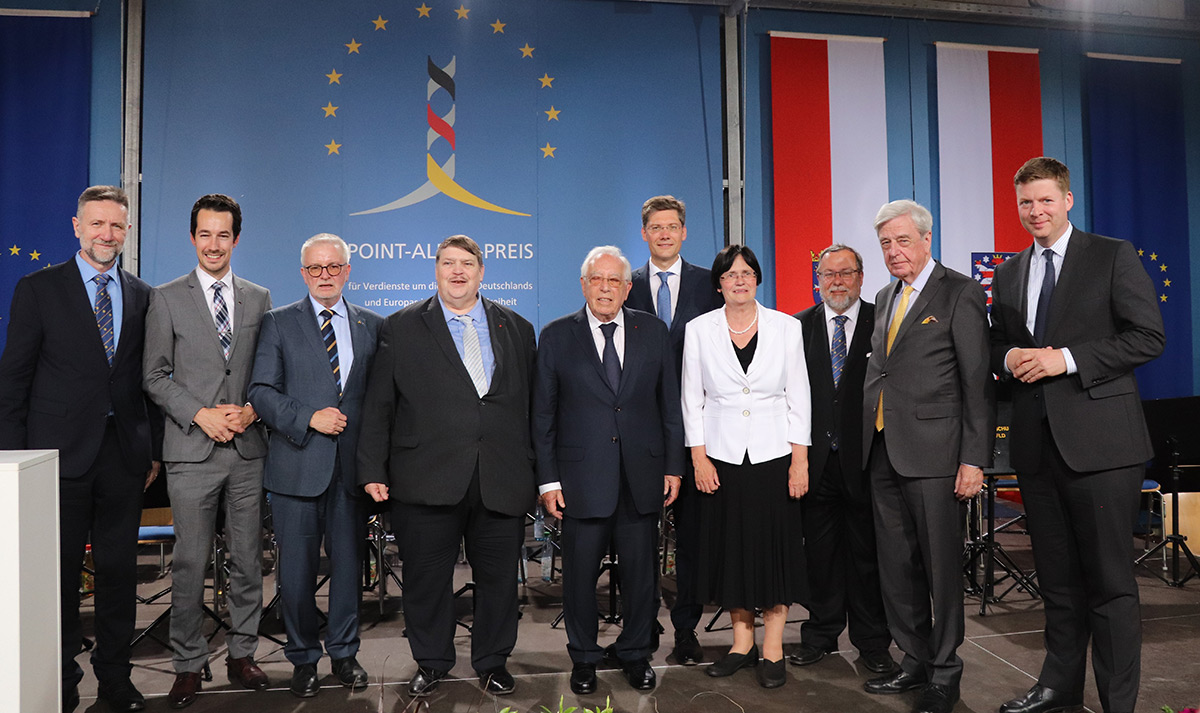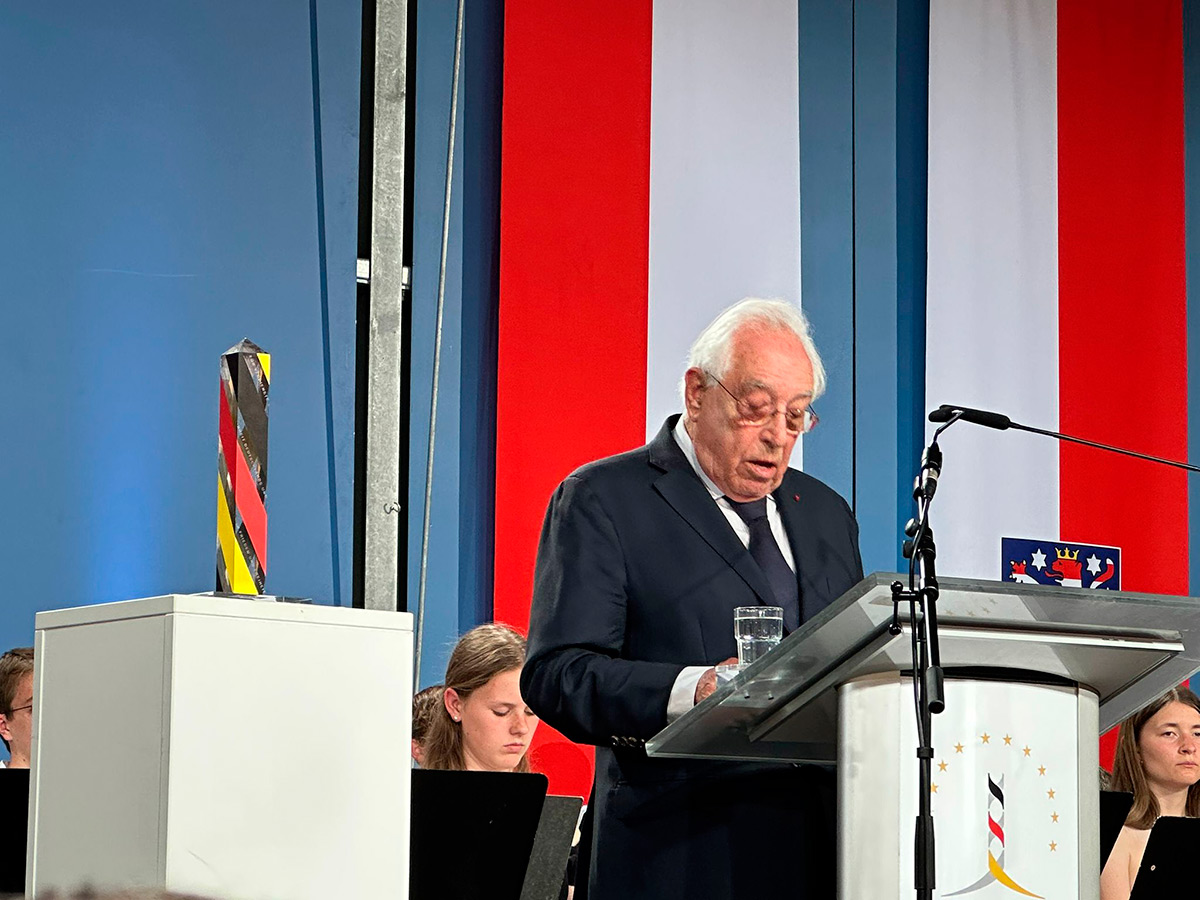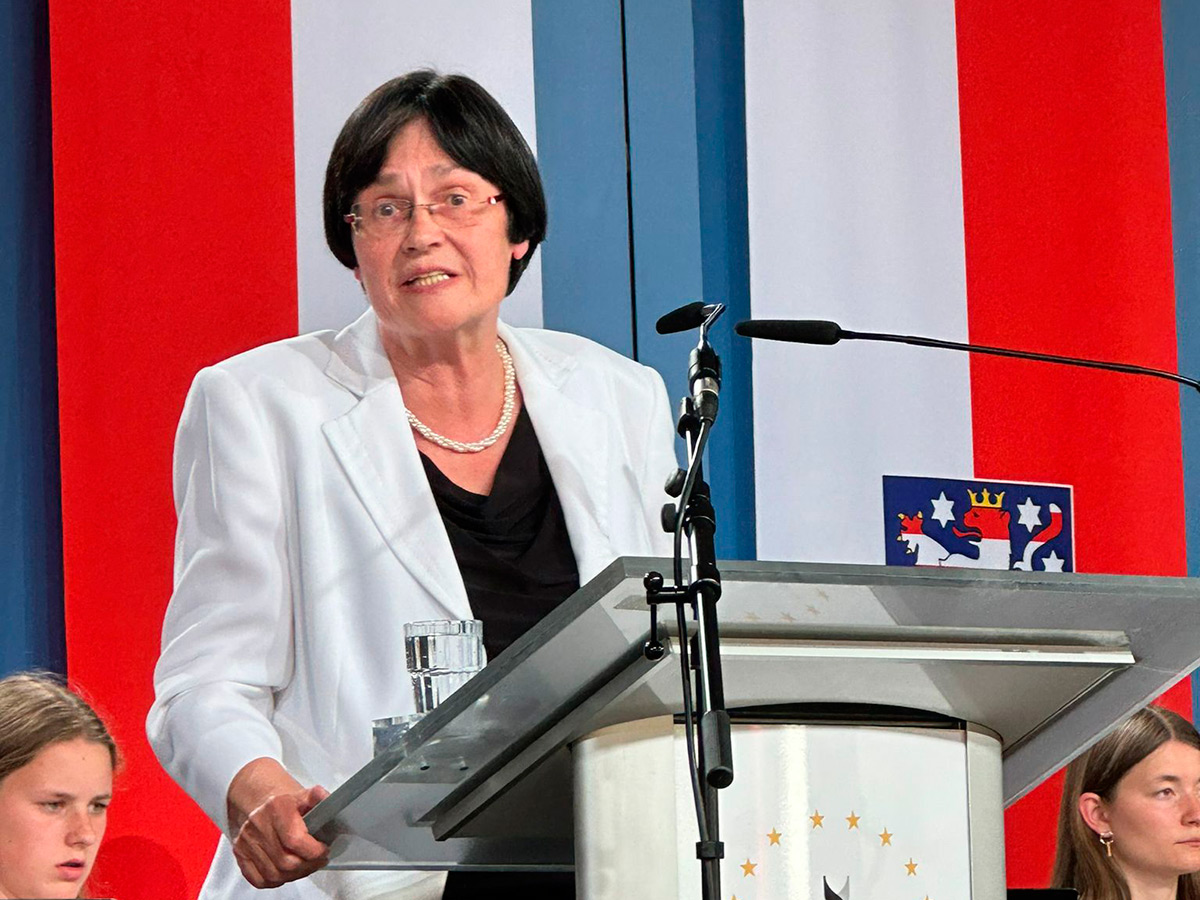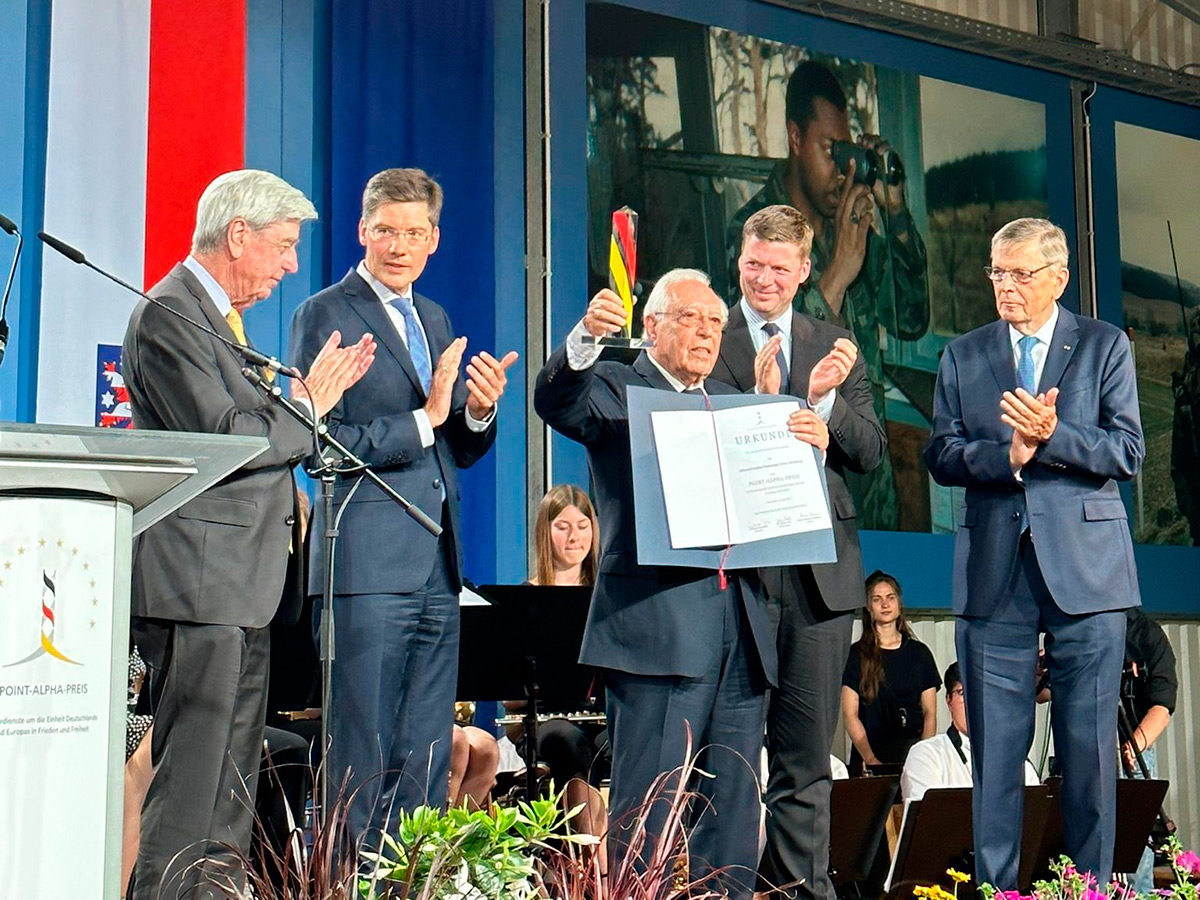Point-Alpha Prize
On Saturday, 17 June 2023, the ‘Point Alpha Prize’ was awarded in the German town of Geisa in Hesse, at the place where the easternmost point of the NATO alliance in Europe was located during the Cold War, in the Wartburg district. The award was presented to the International Pan-European Union, the oldest movement for the unification of Europe, on the occasion of its 100th anniversary.
President Alain Terrenoire recieved the award on behalf of the International Pan-European Union and gave a speech.
Present at the award ceremony were the President of the Pan-European Union Germany Bernd Posselt, the President of the Pan-European Youth Germany Christian Hoferer, the Secretary General of the International Pan-European Union Pavo Barišić, the Treasurer Hans Kijas, several representatives of the Pan-European Union of France and Germany as well as high-ranking representatives of political life from the federal states of Hesse and Thuringia.
The ‘Point Alpha’ award has been presented in the Hessian town of Geisa since 2005 for special services to the unification of Germany and Europe in peace and freedom. George Bush (Sr.), Mikhail Gorbachev, Helmut Kohl, Helmut Schmidt, Lech Walesa and Vaclav Havel were honoured at the place where the easternmost point of the NATO alliance in Europe was located during the Cold War, in the Wartburg district.
The Pan-European Union is the first organisation to receive this award.
In the award citation, it was pointed out that the Pan-European Union has been working for the unification of Europe for a hundred years. The founding ideas of the Pan-European movement gave rise to the idea of a Europe without internal borders and customs controls, a common European currency, a European military and defence alliance, European solidarity and institutions created by the European Union.
One of the greatest achievements in the unification process was the ‘Pan-European Picnic’. Under the leadership of the then President Otto von Habsburg, the meeting was organised in August 1989 in Sopron, Hungary, near the Austrian border. The picnic was used to demonstrate in favour of the demolition of the border fortifications and for a united Europe. This led to a brief symbolic opening of the border. Around 600 GDR citizens took advantage of this to flee to the West.
In his speech, President Terrenoire expressed concern about Europe's increasing dependence on the USA and China. Europe must master the current upheavals and transformations itself. Then the pan-European dream of a solidary, independent Europe will come to life. ‘It is no longer a question of which of our nations will be better, but whether Europe will be a museum with prestigious ruins at the end of the century or a new power worthy of its history. Then the pan-European dream of Coudenhove-Kalergi will no longer be a utopia. Then Europe, a united, independent and sovereign power, will become a reality,’ concluded President Terrenoire.
In her speech, the former Minister President of Thuringia, Christine Lieberknecht (CDU), recalled that the Pan-European Picnic was a key moment in the fall of the Berlin Wall on 9 November 1989. It had thus contributed significantly to the reunification of Germany. The concerns and goals of the movement have lost none of their relevance, said Lieberknecht. After all, peace and freedom can no longer be taken for granted.
News about the award ceremony

